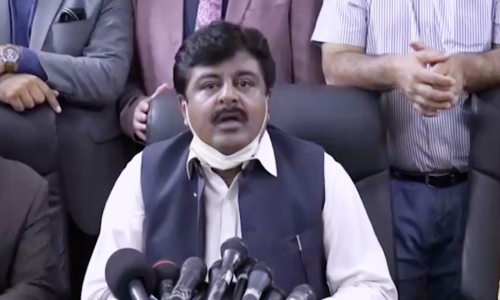THE portrayal of women. The language of instruction. The treatment of STEM topics. The constitutionality of federal diktat on a provincial subject. The extent of public consultation. The conflation of secular and religious subjects. There is no shortage of issues on which the Single National Curriculum (SNC) has stirred controversy.
One area that has faced less scrutiny is the coverage of life skills. Given the prevalence of early marriage and pregnancy, poor awareness of sexual, reproductive and maternal health, and widespread child abuse (nearly 10 reported cases per day, according to child protection organisation Sahil), this is an unfortunate oversight.
During the development of the SNC, a conference on the theme of life skills-based education was organised, stirring hope that topics such as puberty and consent would be addressed. But information available indicates that limited life skills content will be included in the SNC, with a focus on religious values and inclusion, understood narrowly as respect for ethno-linguistic diversity.
Read more: Experts point out flaws in Single National Curriculum
Some life skills like hygiene may be addressed as part of civic conduct and through the religion curriculum, where they are couched in religious values rather than presented as stand-alone topics.
Absence of life skills in the SNC must be rectified.
Broader consideration of sexual and reproductive health, safeguarding and consent may remain untouched. The regressive portrayal of women in the curriculum also likely impacts the quality of any life skills imparted, including consideration of equality and human rights.
Indeed, the religio-nationalist approach of the SNC will likely make any discourse on these essential subjects seem taboo, while also excluding minorities from accessing life skills-based education.
A recent research project by the Nur Centre for Research and Policy underscores the importance of life skills-based education for adolescents. Research for the project Safar-i-Hifazat, was conducted in spring 2020 in government schools in Lahore — 1,125 boys and girls aged 13 and 14 were imparted life skills over four months. Teachers and healthcare practitioners were also trained to provide life skills-based education.
The curriculum covered various topics ranging from gender to nutrition, reproductive health to body protection, peer pressure, marriage and violence.
The project aimed to inform adolescents in order to empower them to protect and care for themselves, and to improve their self-esteem. Interviews conducted before and after the project tracked its impact.
Pre-interviews underscore the urgent need for life skills education in Pakistan. Consider: 67 per cent of project participants believed that experiencing emotions is not normal; 66pc were unaware about the right of divorce in a marriage contract; and 54pc of girls were unaware of physical changes during puberty. Many other misperceptions and knowledge gaps about reproductive health, hygiene, consent and safeguarding were also identified.
Interestingly, even brief exposure to life skills education led to significant improvements. For example, the number of youth who believed it was better to stay silent after being sexually abused dropped from 23pc to 4pc; awareness of self-esteem increased from 27pc to 47pc, and understanding of what puberty entails increased from 45pc to 57pc.
The importance of life skills-based education was already well established before the project quantified its impact. The Sindh government in 2018 introduced life skills-based topics in the provincial curriculum, including modules on human rights, equality, hygiene and practical issues such as protection against hepatitis.
Government representatives at the time directly linked the life skills curriculum to efforts to prevent tragedies such as the mass sexual assaults of children that took place in Kasur.
There is a perception that life skills education may generate squeamishness among adults, including concerns that topics broached are transgressive or inappropriate for adolescents.
But teachers and parents involved in the project welcomed the instruction on these topics, recognising they themselves lack an approach or vocabulary for discussing such topics with young adults. Most parents interviewed were grateful that their children would be safer and healthier.
The need for life skills-based education is clear; let’s hope a holistic life skills curriculum, including topics such as sexual health and consent, is incorporated before the curriculum is rolled out at the secondary school level.
Life skills were identified as a need in the previous National Education Policy, but not widely implemented. Pakistan’s youth deserve more out of the present curriculum reform initiatives.
Life skills-based education should be mainstreamed as part of the SNC and included in teacher training programmes. There is little use imparting information if young people are not empowered to keep themselves healthy and safe.
The writer is a political and integrity risk analyst.
Twitter: @humayusuf
Published in Dawn, September 20th, 2021

















































